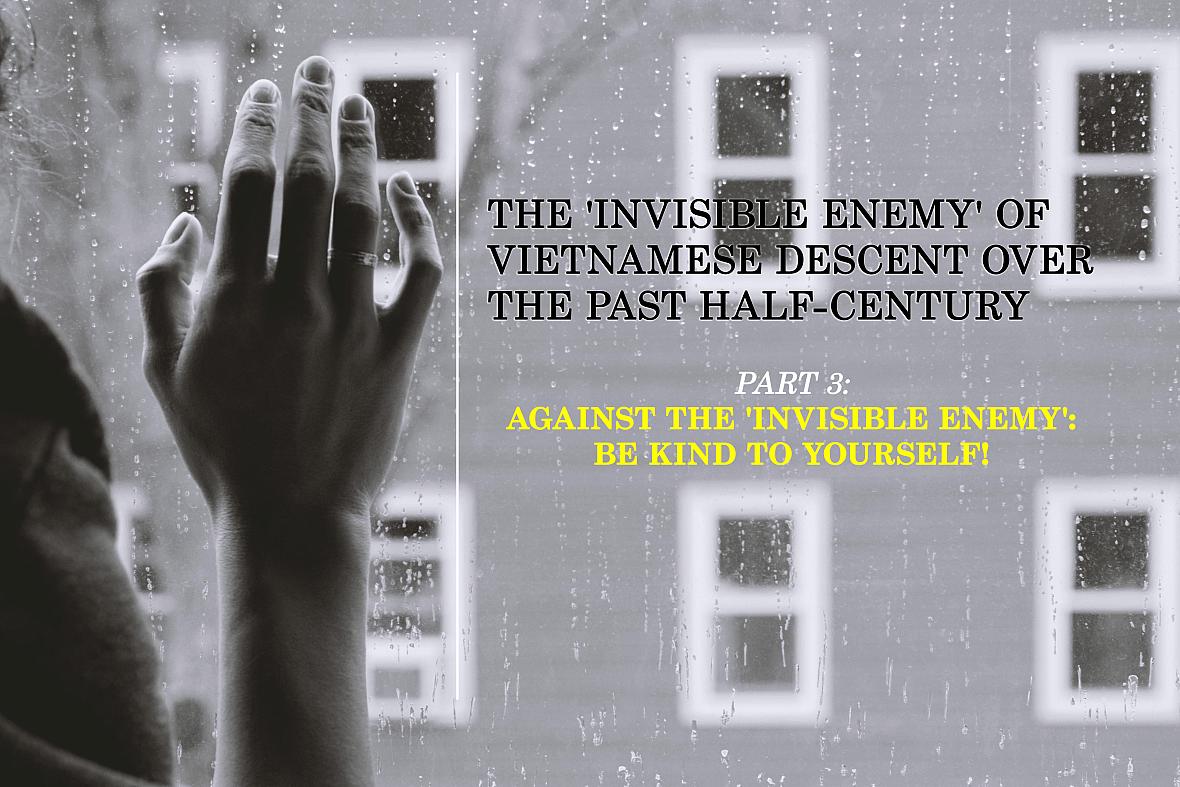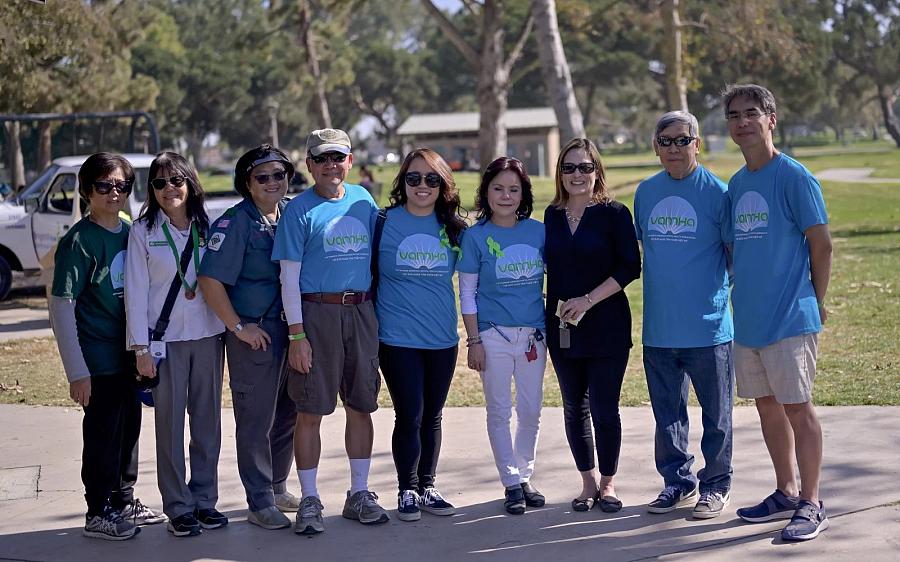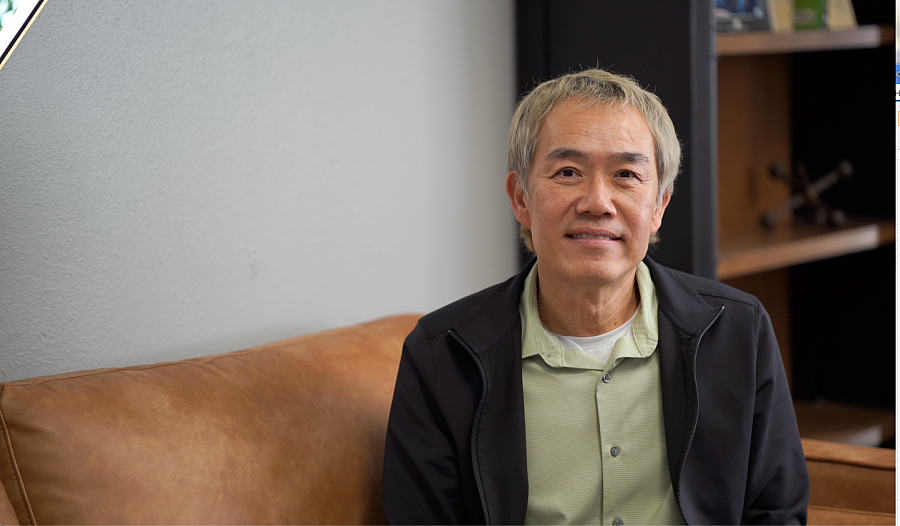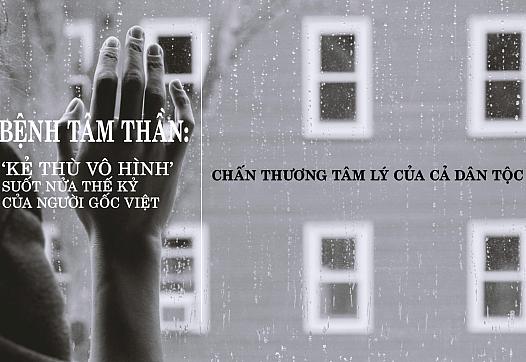The 'Invisible Enemy' of Vietnamese descent over the past half-century
The story was originally published in Nguoi Viet with support from the 2023 Impact Fund for Reporting on Health Equity and Health Systems.

Against the invisible enemy-Be kind to yourself!
Courtesy Kalynh Ngo
For 50 years, there has been an ongoing battle against an unseen and varied enemy. What measures can be taken to overcome that?
Don't hide, don't stigmatize
A study by Quyen Ngo explored that issue around 20 years ago and was published in the Journal of the American Geriatrics Society. The study was based on a sample of data from the 2001 and 2003 California Health Interview Surveys, which included 359 Vietnamese Americans and 25,177 whites in California. Researchers found that 21% of Vietnamese Americans reported having depression or anxiety, compared with 10% of whites. Twenty percent of Vietnamese Americans discussed health issues with a medical provider, compared with 45% of whites.
Ngo concluded in her study that Vietnamese Americans are very hesitant to seek care for mental health issues because “it is considered taboo and is not openly discussed.”
After two decades, the first generation has still not made any progress in terms of improving their mindset. Michel Quan Nguyen said: "Our Vietnamese society has a bad prejudice about mental illness. Even parents never accept their child having a mental illness. Families with mentally ill children will be shunned and not played with."
"It's mentally awkward. It is a general term that takes many forms. When I put the word 'psychotic' on it, it's like the sky is falling, killing people's families,” he added.
Stigma, hate, and fear prevented families from accepting their sick child. “Instead, they often blamed and yelled at them,” Nguyen said.
Sharing, love, and changing
The more the Vietnamese community grows, the more people will embark on a mission to serve the community.
VAMHA, or Project Hope of The Orange County Asian and Pacific Islander Community Alliance (OCAPICA), has programs that care for and help people with mental health problems in their lives.

Michael Quan Nguyen (second from the left) and VAMAHA members
Courtesy VAMHA
"We offer classes and invite psychologists and psychiatrists to talk to them and explain their loved ones' conditions. Many parents don't know what to do when their child has a mental experience," Nguyen said.
His 10-year experience at VAHA has shown that if mental illness is detected early, treated correctly, and medications, it minimizes the number of times they develop. This is what psychiatrist Giao Nguyen has determined: "Patients are required to take medication."
Dr. Clayton Chau stresses the importance of psychotherapy in addition to medication. Family therapy is recommended for both patients and their families.
According to Chau, how families treat each other is extremely important. If the patient recovers and the family does not change the way they behave with each other, there will be no treatment for the whole family and no good outcome.

Dr Calyton Chau in his office
Courtesy Kalynh Ngo
"They have to change how they treat each other, how they relate to each other, and how they talk to each other to empathize with each other more. Otherwise, there's no cure," Chau said.
Psychiatrist Nguyen stated that individuals experiencing mental and emotional pain may only see death as a solution to their issues, as it is unlikely for the average person to fully comprehend the magnitude of their pain.
"Research has shown that mental pain is no different from that of a person with cancer. It is the responsibility of psychiatrists and psychotherapists to help them," Nguyen added.
Therefore, the first "therapy" that people with mental health problems need to receive is from their family. Michael Quan Nguyen said, "Don't hate your children and grandchildren; accept the truth and love them like other children. Let go of prejudice; cooperate with your doctor and child to treat him."
A promising sign mentioned in the research topic 'Conversations on Mental Wellness in Vietnamese American Community' published in Asian American Research Journal (Issue 1, Volume 1 2021) indicated:
"Second-generation Vietnamese Americans are more open to discussing mental health, and they are more proactive in seeking specialized professionals and doctors than first-generation immigrants."
Psychiatrist Suzie Dong said that she met many "guests" of the second and third generation in the psychotherapeutic environment. According to her, it is good because young people have more liberal and progressive thoughts.
"If the previous generation viewed mental health as something abnormal, bad, bad that shouldn't be told to everyone, then the next generation thinks differently. You come here to help yourself. They understand mental health is an essential part of their overall health,” Dong said.
Self-love
If Michel Quan Nguyen has come to VAMHA to learn how to accept, understand, and love his loved ones more, to help himself and others in the same situation, Ms. Phan Chieu Ha has overcome the incident with the help of Caregiver Resource Center OC (Orange County Resource Center for Caring for People). Without hesitation, she recounted:
"It's beyond imagination, beyond my endurance. But thanks to Ms. Pauline, thanks to the center, and my study group, people helped me and shared with me the difficulties. When I meditate, I practice peace. When I am in peace, I can naturally transform my suffering."
"I overcame my situation by participating in center activities, meeting others in similar situations, and attending meditation school," she said.
Her mental health healed; thoughts of permanent death vanished.
Dr. Suzie Dong called it "self-kindness."
“They understand that their health is the most important thing. The tree needs the sun, soil, and fertilizer to grow. So why don't we practice being kind to ourselves? We are the only ones who will be with ourselves for the rest of our lives, and if we bruise ourselves, how can we be psychologically healthy?” Dong said.
According to Dong, if we live in a society with so much judgment, in a family with so much abuse, what people learn is that they have no value at all. Especially children who grow up in such an environment will always think they are wrong, not confident, and do not love themselves. Harmful complexes grow like weeds on the side of the road. It cannot give people vital energy.
She recalled the teaching of a Zen master who said, "Think of a person as a tree. If its leaves are damaged, we should examine what is wrong with the tree, fertilize or water it, instead of cutting it down. Similarly, we should treat people with care and compassion. Self-love and meditation have become popular ways for people to heal themselves."
Meditation here does not imply religion but brain health. A lot of research has been done on brain health through mindfulness practices. "In mindfulness, people learn a lot of ways to be kind to themselves," she said.
Dong called it "Self-love.”
Psychiatrist Giao Nguyen's advice to his patients is, "if you have a disease, take your medication as prescribed and see a psychiatrist regularly."
"Take care of yourself. Prevention is better than 'treatment,” Nguyen said. “Get yourself into healthy eating habits. Do sports regularly. Try to walk about 10,000 steps a day. Take the pressure off your life as much as you can."
When life becomes overwhelming with multidimensional pressures, how do we alleviate them? “The answer is simple: by reducing our desires,” he said.
"Why pursue a second car and take on multiple jobs when the one you have is already sufficient? A comfortable home meets your needs, so there's no need to strive for more space or luxury. It's important to relieve some of the pressure in your life, both for yourself and those around you.”


